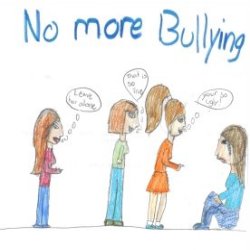Responsible Use of Electronic Devices and Technology
We consider the use of cell phones, i-pods, cameras (video and photograph - digital and otherwise) and all other non-educational electronic devices to be a disruptive influence of the daily routine of the school. As such, students are asked to leave these electronics at home. Students who choose to bring these devices to school must keep them in their school bags throughout the school day. Please be advised that we will not be held accountable if these items are stolen.
Cell phones (any electronic device) are not to be used inside the school at any time (for any type of use conversation, text messaging, surfing the net, etc.). Kindly be advised that it is illegal to take unauthorized pictures, videos, and sound clips on school property. This is considered an invasion of privacy by both the Federal and Provincial Governments. Electronic devices may only be used within an academic context, which is endorsed by the staff and administration of Allion Elementary School. For emergency situations to call parents, students may request to use a telephone at the School Office.
In short, the use of cell phones, personal cameras, and/or electronic devices is prohibited on school grounds. A student using a cell phone or personal camera, and/or electronic devices on school property will have the item confiscated. It will be returned only to the parents. Parents will also be asked to verify that there are no pictures on the camera or cell phone that were taken at school.
Cyber Misconduct
Cyber-bullying is emerging as one of the more challenging issues facing educators and parents as young people embrace the Internet and mobile communication technologies.
Cyber misconduct involves the use of information and communication technologies such as e-mail, cell phone, pager, text messages, instant messaging, defamatory personal Web sites, and defamatory online personal polling Web sites, to support deliberate, repeated, and hostile behaviour by an individual or group, which is intended to harm others.
To be more specific, cyber-misconduct or cyber-bullying is sending or posting harmful or cruel text or images using the Internet or other digital communication devices.
Students who are:
- Sending cruel, vicious, and sometimes threatening messages
- Creating websites that have stories, cartoons, pictures, and jokes ridiculing others
- Posting pictures of classmates online and asking students to rate them
- Breaking into an e-mail account and sending vicious or embarrassing material to others
- Engaging someone in IM (instant messaging), tricking that person into revealing sensitive personal information, and forwarding that information to others
- Taking a picture of a person using a digital phone camera and sending that picture to others
Stop Cyber BullyingParents can start by talking to kids about the issue and teaching them the rules below that will help prevent cyber-bullying from happening to them or someone they know. |
|
- Students should never give out personal information online, whether in instant message profiles, chat rooms, blogs, or personal websites.
-
Students should never tell anyone, but their
parents, of personal password, even friends.
If someone sends a mean or threatening message, students should not respond. They should save it and print it out and show it to their parents. (Never delete the evidence.) - Students should never open e-mails from someone they don't know or from someone they know is a bully.
- Students should not put anything online that they wouldn't want their classmates to see, even in e-mail.
- Students should not send messages when they are angry. Before clicking "send," students should ask themselves how they would feel if they received the message.
- It is the responsibility of all students to help others who are bullied online by not joining in and showing bullying messages to their parents.
- Students should always be as polite online as they are in person.
What Parents Can Do:
- Parents should keep the home computer in a busy area of the house.
- Parents should set-up e-mail and chat accounts with their children. Parents should make sure that they know their children’s screen names and passwords and that they do not include any personal information in their online profiles.
- Parents should regularly go over their children’s instant messenger "buddy list" with them. Parents should ask who each person is and how their children know him or her.
- Parents should discuss cyber-bullying with their children and ask if they have ever experienced it or seen it happen to someone.
- Parents should tell their children that they will not blame them if they are cyber-bullied. Parents should emphasize that they will not take away their computer privileges - this is the main reason why children don't tell adults when they are cyber-bullied.















